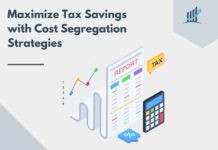Introduction
In the complex world of business and taxes, the term “Accountable Plan” stands out as a beacon of relief and financial benefit for both employers and employees. An Accountable Plan is a tax strategy that allows employers to reimburse their employees for business expenses, without the added burden of tax liabilities. It’s a perfect blend of accountability, transparency, and compliance. For small businesses, this strategy can prove invaluable, providing substantial tax savings and streamlining expense reporting.
In this comprehensive guide, we dive deep into the definition, importance, IRS requirements, benefits, implementation process, and practical examples of Accountable Plans. We also address frequently asked questions and illustrate how Accountable Plans fit into broader tax strategies for small businesses. By the end of this guide, you’ll have a firm grasp on the significant role Accountable Plans can play in enhancing your small business’s financial health and operational efficiency. Let’s navigate the world of Accountable Plans together!
Definition of Accountable Plans
Accountable plans are a tax strategy that allows employers to reimburse their employees for business expenses without incurring any additional tax liabilities. In an accountable plan, employees are required to provide detailed documentation of their business expenses and must return any excess reimbursement back to the employer.
This type of plan is beneficial for both employers and employees as it helps to ensure that all business expenses are properly accounted for and reduces the risk of audit by the IRS. One of the defining characteristics of an accountable plan is that it requires employees to submit detailed expense reports in order to receive reimbursement.
This means that each expense must be documented with a receipt or other proof of purchase and must be directly related to the employee’s job duties. In addition, there must be a clear connection between the expense and the employer’s business goals.
Another benefit of an accountable plan is that it allows for tax-free reimbursement of business expenses. Under this type of plan, reimbursements are not considered taxable income for employees, which can help reduce their overall tax liability.
However, in order for these reimbursements to be considered non-taxable, they must be made within a reasonable period after the expense was incurred, and any excess amounts must be returned by the employee promptly. Overall, accountable plans can provide significant tax savings for both small businesses and their employees when implemented properly with an efficient expense reporting system in place.

Importance of Accountable Plans for Small Business Owners
Small business owners often classify their expenses as a tax-deductible reduction in their taxable income. However, the Internal Revenue Service (IRS) requires that these expenses be properly documented and accounted for to be deemed tax-deductible. This is where accountable plans come into play.
Accountable plans are a set of procedures that small business owners use to reimburse employees for business expenses while avoiding any taxes on the reimbursement. The importance of accountable plans cannot be overstated when it comes to small business owners and their tax strategy.
A well-implemented accountable plan can save small businesses a significant amount of money through proper documentation and reimbursement procedures. Small businesses can also benefit from implementing an expense reporting system that will capture all relevant data about each transaction, ensuring that there is complete documentation available when needed.
With an expense reporting system in place, the IRS will have no questions about the validity of the claimed deductions, which can save small businesses countless hours and resources in responding to audits or examinations. In addition to saving money by avoiding unnecessary taxes and reducing audit risk, accountable plans provide several other benefits for small business owners as well.
These benefits include improved employee morale by providing clear guidelines for what constitutes reimbursable expenses, greater control over employee spending by restricting certain types of expenditures or enforcing limits on others, and increased transparency throughout the organization regarding how much is being spent on specific categories of business expenses. Overall, accountable plans are essential tools for small business owners who want to maximize their tax savings while maintaining strict compliance with IRS regulations.
The Basics of Accountable Plans
Accountable plans are tax-advantaged reimbursement programs set up by employers for their employees.
These plans allow employees to be reimbursed for certain business-related expenses without having to pay taxes on that reimbursement. The biggest advantage of an accountable plan is that it allows both employers and employees to save money on taxes, as reimbursements made under an accountable plan are not considered taxable income.
To qualify as an accountable plan, there are three key requirements that must be met. First, the expenses being reimbursed must have a business purpose and be related to the employee’s job duties.
Second, the employee must provide adequate documentation of the expense in order to receive reimbursement. Third, any excess funds received by the employee beyond what was spent on actual expenses must be returned to the employer in a timely manner.
Creating an effective expense reporting system is crucial for implementing a successful accountable plan. This system should include clear guidelines on what types of expenses can be reimbursed, how much can be reimbursed, and what documentation is required for each expense.
It should also include clear instructions for submitting expense reports and timelines for processing reimbursements. By creating a well-designed expense reporting system, both employers and employees can benefit from simplified recordkeeping and streamlined reimbursement processes.

IRS Requirements for Accountable Plans
To ensure that a reimbursement plan qualifies as an accountable plan, the IRS imposes a set of requirements that must be met. These requirements apply to both employers and employees who participate in the plan. The first requirement is that all expenses covered under the plan must have a business connection.
This means that expenses must be incurred while performing services for the employer, and they must be necessary and reasonable. Additionally, employees are required to submit documentation of their expenses to their employer within a reasonable period after they were incurred.
This documentation should include the date, amount, and business purpose of each expense. The purpose of this requirement is to ensure that employers can verify that reimbursed amounts were actually used for business purposes and not personal use.
Any excess payments made by mistake or returned by the employee must be returned to the employer within a reasonable time frame. The IRS defines “reasonable” as 120 days from when payment was made or when an expense was paid or incurred if it wasn’t submitted for reimbursement immediately.
Failure to return excess payments will result in those amounts being treated as taxable income for the employee. Meeting these requirements is crucial because if an accountable plan fails to meet these requirements, then it will not qualify as a reimbursement plan under IRS regulations.
Instead, it will be treated as a nonaccountable plan which can lead to additional taxes on both employers and employees. Thus, it is essential for small businesses using accountable plans to have an effective expense reporting system in place, along with clear guidelines regarding documentation submission timelines and excess payment returns.
Benefits of Accountable Plans for Small Businesses
One of the major benefits of accountable plans for small businesses is that they help to reduce taxes for both the business and its employees. Under an accountable plan, any reimbursement made by the business to its employees for legitimate business expenses is not taxed as income.
This means that employees can receive tax-free reimbursements for expenses such as travel, meals, lodging, and other necessary expenses related to their job. At the same time, the business can deduct these expenses on their tax return.
This results in a win-win situation where both parties benefit from reduced taxes. Another benefit of accountable plans is that they provide a clear expense reporting system for small businesses.
With an accountable plan in place, employees are required to submit documentation and receipts for any expenses they are seeking reimbursement. This ensures that all expenses claimed are legitimate and directly related to the employee’s job responsibilities.
Having a clear expense reporting system not only helps prevent fraudulent claims but also provides transparency and accountability in how business funds are being used. Additionally, having accurate records makes it easier come tax time when filing returns and potentially facing audits.
Accountable plans allow small businesses to reduce taxes while providing a clear expense reporting system for their employees. By implementing an accountable plan, small businesses can focus on growing their company while ensuring compliance with IRS regulations regarding reimbursement of Business Expenses.

Implementing an Accountable Plan
Now that we’ve established the benefits of accountable plans and the IRS requirements, it’s time to discuss how to implement an accountable plan in your small business.
Below are some steps you can take to set up your accountable plan:
1. Establish a written expense reporting system – The first step in implementing an accountable plan is to establish a written expense reporting system that meets IRS requirements. Your system should clearly state the types of expenses that can be reimbursed under the plan and what documentation is required for reimbursement.
2. Reimbursement process – Once you have your expense reporting system in place, you should then determine how employees will be reimbursed for their business expenses. This process should include details on how employees will submit their expenses and who will approve them.
3. Record keeping – In order, for your accountable plan to be effective, it’s important to keep accurate records of all reimbursed expenses. This includes documentation such as receipts, invoices, and other supporting documents.
By following these steps, you can ensure that your accountable plan is set up correctly and meets all IRS requirements. Not only does this help protect you against potential tax liabilities, but it also provides a clear structure for employees when submitting business expenses for reimbursement.
Case Study: Successful Use of Accountable Plans in Small Businesses
A successful example of utilizing accountable plans for small businesses is illustrated by the case of ABC, a marketing firm. ABC had a team of 10 employees who were tasked with traveling to various locations across the country to meet clients and attend conferences.
Previously, ABC had reimbursed its employees through an expense reporting system that allowed them to claim their business expenses at the end of each month. However, this process was time-consuming and resulted in inaccurate or incomplete expense reports.
After implementing an accountable plan, ABC was able to streamline its reimbursement process and improve accuracy in tracking business expenses. The company established clear guidelines for what constituted eligible business expenses and established a per diem rate for daily meals and lodging based on IRS guidelines.
Employees were required to submit receipts for all other expenses related to travel such as transportation costs or conference fees. This change resulted in quicker reimbursements for employees while also ensuring that all expenses being claimed were legitimate business expenses.
Overall, implementing an accountable plan allowed ABC to save time and money by reducing administrative costs associated with manually reviewing employee expense reports. Furthermore, it ensured compliance with IRS regulations while providing transparency in how reimbursement decisions are made within the organization.

Accountable Plans and Tax Strategy
As we have seen throughout this article, accountable plans can be a valuable tool for small business owners looking to streamline their expense reimbursement process while also benefiting from tax advantages. However, it is also important to consider how accountable plans fit into the larger picture of tax strategy for small businesses.
One major benefit of accountable plans is their ability to increase the deductibility of business expenses. By using an accountable plan, business owners can ensure that all expenses are properly documented and reimbursed according to IRS guidelines.
This not only helps with compliance, but it also provides a clear paper trail that can be used in case of an audit. Additionally, because accountable plan reimbursements are considered nontaxable income, they can reduce overall tax liability for both the business and individual employees.
When incorporating an accountable plan into a larger tax strategy, it is important to consider the potential impact on other deductions. For example, some small businesses may choose to utilize a home office deduction or take advantage of bonus depreciation on equipment purchases.
In these cases, it may be necessary to adjust reimbursement rates or expense reporting systems in order to avoid double-dipping on deductions. Working with a qualified tax professional can help ensure that all aspects of your tax strategy are aligned and optimized for the greatest benefit.
Frequently Asked Questions about Accountable Plans
As with any tax strategy, there are always questions and concerns that arise when considering implementing accountable plans for your small business. Here are some frequently asked questions and their answers:
Q: What types of expenses can be reimbursed through an accountable plan? A: Any legitimate business expense can be reimbursed through an accountable plan.
This includes expenses such as travel, meals, office supplies, equipment purchases, and more. However, these expenses must be properly documented and reported in order to qualify for reimbursement.
Q: Do I need to have a specific expense reporting system in place for an accountable plan? A: Yes, in order to qualify as an accountable plan under IRS regulations, you must have a detailed expense reporting system in place.
This system should include itemized receipts and documentation for all expenses being reimbursed through the plan. It is important to keep accurate records of all expenses throughout the year to ensure that they can be properly reported at tax time.
Overall, implementing accountable plans can provide significant benefits for small business owners by allowing them to reduce their taxable income while still providing reimbursement for necessary business expenses. If you have further questions or concerns about how accountable plans could benefit your business specifically, it is recommended that you consult with a tax professional who can provide personalized advice based on your unique circumstances.

Recap of the Importance of Accountable Plans
Accountable plans offer small business owners a powerful way to control expenses and reduce tax liability.
By utilizing this tax strategy, business owners can ensure that their employees are reimbursed for work-related expenses in a legitimate and fully documented manner. This not only minimizes the risk of audit but also provides the business with a much better means of tracking and managing their costs.
Furthermore, by implementing an accountable plan, businesses can reap significant tax savings through the reduction of payroll taxes on reimbursements. When employees receive reimbursement under an accountable plan, the payments are generally classified as nontaxable under both federal and state law.
This means that they are not subject to income tax withholding, Social Security taxes or Medicare taxes. As such, both employers and employees alike stand to benefit from lower payroll taxes through this type of reimbursement system.
The use of an expense reporting system is critical for implementing an effective accountable plan. Without one in place, it can be difficult to track reimbursements accurately and determine whether they qualify as legitimate business expenses.
Therefore, it’s essential to have a well-designed expense reporting system that outlines what expenses qualify for reimbursement and establishes clear procedures for employees to follow when submitting receipts or other documentation. In doing so, small business owners can ensure that they maximize their savings while remaining compliant with IRS regulations regarding accountable plans.
Encouragement for Further Consultation with a Tax Professional
While accountable plans can provide significant tax savings for small businesses, it is important to understand that these plans are subject to strict IRS requirements.
As such, it is strongly recommended that business owners seek the advice of an experienced tax professional before implementing an accountable plan or making any changes to their existing expense reporting system. A tax professional can help ensure that the accountable plan meets all necessary IRS requirements and provides maximum benefits to the business.
They can also assist with setting up an appropriate expense reporting system and provide guidance on how to properly reimburse employees for business expenses. Additionally, a tax professional can help business owners stay up-to-date on any changes in tax laws or regulations related to accountable plans.
With their expertise and guidance, small business owners can navigate complex tax laws with confidence and peace of mind knowing they are not only saving money but also following all applicable regulations. Ultimately, seeking the advice of a qualified tax professional is the best way for small business owners to make informed decisions about implementing accountable plans as part of their overall tax strategy.
Conclusion
It is clear that accountable plans are a valuable tax strategy for small business owners. By implementing an accountable plan, businesses can ensure that they are complying with IRS regulations while also maximizing their tax savings.
Not only do accountable plans provide a framework for proper expense reporting and reimbursement, but they also create transparency and accountability in the business’s financial practices. One key takeaway from this discussion is the importance of consulting with a tax professional to determine the best approach for implementing an accountable plan.
While the basic requirements of an accountable plan may seem straightforward, there are many nuances and potential pitfalls that could be missed without professional guidance. Additionally, a tax professional can help small business owners stay up-to-date with changing IRS regulations and ensure ongoing compliance.
Overall, it is clear that accountable plans offer significant benefits to small businesses in terms of both tax savings and financial transparency. By establishing an expense reporting system and adhering to IRS guidelines for reimbursement of business expenses, businesses can achieve greater financial stability and success in the long run.
As you continue your deep dive into tax strategies, you’ll want to unlock more ways to amplify your benefits. Discover how to stretch your rental property profits by understanding and utilizing depreciation strategies effectively in our article, How to Maximize Depreciation for Rental Property. Don’t stop there! Keep the momentum and further your tax savvy by learning about the different types of business entities and discerning the best one for you in What’s the Best Entity Type for My Business. Your journey to tax mastery is just a click away!










